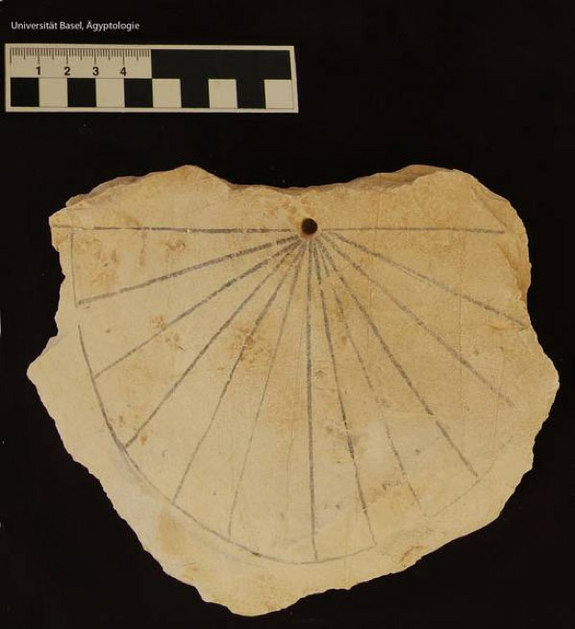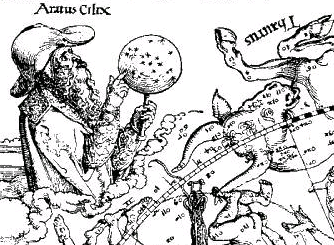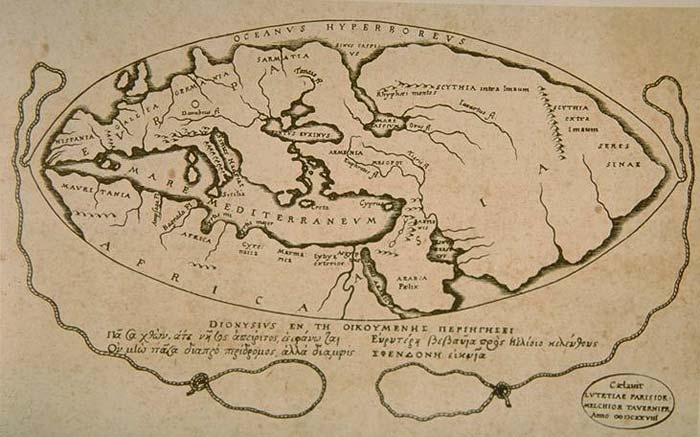|
Diodorus Of Alexandria
Diodorus of Alexandria or Diodorus Alexandrinus was a gnomonicist, astronomer and a pupil of Posidonius. Writings He wrote the first discourse on the principles of the sundial, known as ''Analemma''. a commentary on this having later been written by Pappus of Alexandria, that is no longer extant. A small number of sentences having survived the centuries and attributed to him are known; these comment on: the differences between astronomy and natural science, the word meanings for cosmos and star, the nature of stars and the Milky Way. He was known to Eudoros. A few surviving passages might come from a commentary on Aratus. In his dealings with astronomy he was known to Marinus in his commentary on Euclid's ''Data'' containing quotes of Diodorus's opinions on the meaning of a term. See also *Alexandria *Analemma *Euclid *History of sundials A sundial is a device that indicates time by using a light spot or shadow cast by the position of the Sun on a reference scale. As the ... [...More Info...] [...Related Items...] OR: [Wikipedia] [Google] [Baidu] |
Gnomon
A gnomon (; ) is the part of a sundial that casts a shadow. The term is used for a variety of purposes in mathematics and other fields. History A painted stick dating from 2300 BC that was excavated at the astronomical site of Taosi is the oldest gnomon known in China. The gnomon was widely used in ancient China from the second century BC onward in order to determine the changes in seasons, orientation, and geographical latitude. The ancient Chinese used shadow measurements for creating calendars that are mentioned in several ancient texts. According to the collection of Zhou Chinese poetic anthologies ''Classic of Poetry'', one of the distant ancestors of King Wen of the Zhou dynasty used to measure gnomon shadow lengths to determine the orientation around the 14th century BC. The ancient Greek philosopher Anaximander (610–546 BC) is credited with introducing this Babylonian instrument to the Ancient Greeks. The ancient Greek mathematician and astronomer Oenopides used t ... [...More Info...] [...Related Items...] OR: [Wikipedia] [Google] [Baidu] |
Marinus Of Tyre
Marinus of Tyre ( grc-gre, Μαρῖνος ὁ Τύριος, ''Marînos ho Týrios''; 70–130) was a Greek geographer, cartographer and mathematician, who founded mathematical geography and provided the underpinnings of Claudius Ptolemy's influential ''Geography''. Life Marinus was originally from Tyre in the Roman province of Syria. His work was a precursor to that of the great geographer Claudius Ptolemy, who used Marinus' work as a source for his ''Geography'' and acknowledges his great obligations to him. Ptolemy said, "Marinus says of the merchant class generally that they are only intent on their business, and have little interest in exploration, and that often through their love of boasting they magnify distances." Later, Marinus was also cited by the |
Year Of Death Missing
A year or annus is the orbital period of a planetary body, for example, the Earth, moving in its orbit around the Sun. Due to the Earth's axial tilt, the course of a year sees the passing of the seasons, marked by change in weather, the hours of daylight, and, consequently, vegetation and soil fertility. In temperate and subpolar regions around the planet, four seasons are generally recognized: spring, summer, autumn and winter. In tropical and subtropical regions, several geographical sectors do not present defined seasons; but in the seasonal tropics, the annual wet and dry seasons are recognized and tracked. A calendar year is an approximation of the number of days of the Earth's orbital period, as counted in a given calendar. The Gregorian calendar, or modern calendar, presents its calendar year to be either a common year of 365 days or a leap year of 366 days, as do the Julian calendars. For the Gregorian calendar, the average length of the calendar yea ... [...More Info...] [...Related Items...] OR: [Wikipedia] [Google] [Baidu] |
History Of Sundials
A sundial is a device that indicates time by using a light spot or shadow cast by the position of the Sun on a reference scale. As the Earth turns on its polar axis, the sun appears to cross the sky from east to west, rising at sun-rise from beneath the horizon to a zenith at mid-day and falling again behind the horizon at sunset. Both the azimuth (direction) and the altitude (height) can be used to create time measuring devices. Sundials have been invented independently in every major culture and became more accurate and sophisticated as the culture developed. Introduction A sundial uses local time. Before the coming of the railways in the 1840s, local time was displayed on a sundial and was used by the government and commerce. Before the invention of the clock the sundial was the only source of time. After the invention of the clock, the sundial maintained its importance, as clocks needed to be reset regularly from a sundial, because the accuracy of early clocks was poor. A clo ... [...More Info...] [...Related Items...] OR: [Wikipedia] [Google] [Baidu] |
Euclid
Euclid (; grc-gre, Εὐκλείδης; BC) was an ancient Greek mathematician active as a geometer and logician. Considered the "father of geometry", he is chiefly known for the ''Elements'' treatise, which established the foundations of geometry that largely dominated the field until the early 19th century. His system, now referred to as Euclidean geometry, involved new innovations in combination with a synthesis of theories from earlier Greek mathematicians, including Eudoxus of Cnidus, Hippocrates of Chios, Thales and Theaetetus. With Archimedes and Apollonius of Perga, Euclid is generally considered among the greatest mathematicians of antiquity, and one of the most influential in the history of mathematics. Very little is known of Euclid's life, and most information comes from the philosophers Proclus and Pappus of Alexandria many centuries later. Until the early Renaissance he was often mistaken for the earlier philosopher Euclid of Megara, causing his biograph ... [...More Info...] [...Related Items...] OR: [Wikipedia] [Google] [Baidu] |
Analemma
In astronomy, an analemma (; ) is a diagram showing the position of the Sun in the sky as seen from a fixed location on Earth at the same mean solar time, as that position varies over the course of a year. The diagram will resemble a figure eight. Globes of Earth often display an analemma as a two-dimensional figure of equation of time vs. declination of the Sun. The north–south component of the analemma results from the change in the Sun's declination due to the tilt of Earth's axis of rotation. The east–west component results from the nonuniform rate of change of the Sun's right ascension, governed by combined effects of Earth's axial tilt and orbital eccentricity. One can photograph an analemma by keeping a camera at a fixed location and orientation and taking multiple exposures throughout the year, always at the same time of day (disregarding daylight saving time, if applicable). Diagrams of analemmas frequently carry marks that show the position of the Su ... [...More Info...] [...Related Items...] OR: [Wikipedia] [Google] [Baidu] |
Alexandria
Alexandria ( or ; ar, ٱلْإِسْكَنْدَرِيَّةُ ; grc-gre, Αλεξάνδρεια, Alexándria) is the second largest city in Egypt, and the largest city on the Mediterranean coast. Founded in by Alexander the Great, Alexandria grew rapidly and became a major centre of Hellenic civilisation, eventually replacing Memphis, in present-day Greater Cairo, as Egypt's capital. During the Hellenistic period, it was home to the Lighthouse of Alexandria, which ranked among the Seven Wonders of the Ancient World, as well as the storied Library of Alexandria. Today, the library is reincarnated in the disc-shaped, ultramodern Bibliotheca Alexandrina. Its 15th-century seafront Qaitbay Citadel is now a museum. Called the "Bride of the Mediterranean" by locals, Alexandria is a popular tourist destination and an important industrial centre due to its natural gas and oil pipelines from Suez. The city extends about along the northern coast of Egypt, and is the large ... [...More Info...] [...Related Items...] OR: [Wikipedia] [Google] [Baidu] |
Data (Euclid)
''Data'' ( Greek: Δεδομένα, ''Dedomena'') is a work by Euclid. It deals with the nature and implications of "given" information in geometrical problems. The subject matter is closely related to the first four books of Euclid's ''Elements Element or elements may refer to: Science * Chemical element, a pure substance of one type of atom * Heating element, a device that generates heat by electrical resistance * Orbital elements, parameters required to identify a specific orbit of ...''. Editions and translations ;Greek text *''Data'', ed. H. Menge, in ''Euclidis opera omnia'', vol. 6, Leipzig: Teubner, 1896Google Books ;English versions *Translated by Robert Simson 1821 edition [...More Info...] [...Related Items...] OR: [Wikipedia] [Google] [Baidu] |
Aratus
Aratus (; grc-gre, Ἄρατος ὁ Σολεύς; c. 315 BC/310 BC240) was a Greek didactic poet. His major extant work is his hexameter poem ''Phenomena'' ( grc-gre, Φαινόμενα, ''Phainómena'', "Appearances"; la, Phaenomena), the first half of which is a verse setting of a lost work of the same name by Eudoxus of Cnidus. It describes the constellations and other celestial phenomena. The second half is called the ''Diosemeia'' (Διοσημεῖα "Forecasts"), and is chiefly about weather lore. Although Aratus was somewhat ignorant of Greek astronomy, his poem was very popular in the Greek and Roman world, as is proven by the large number of commentaries and Latin translations, some of which survive. Life There are several accounts of Aratus's life by anonymous Greek writers, and the Suda and Eudocia also mention him. From these it appears that he was a native of Soli in Cilicia, (although one authority says Tarsus). He is known to have studied with Menecrate ... [...More Info...] [...Related Items...] OR: [Wikipedia] [Google] [Baidu] |
Posidonius
Posidonius (; grc-gre, wikt:Ποσειδώνιος, Ποσειδώνιος , "of Poseidon") "of Apamea (Syria), Apameia" (ὁ Ἀπαμεύς) or "of Rhodes" (ὁ Ῥόδιος) (), was a Greeks, Greek politician, astronomer, astrologer, geographer, historian, mathematician, and teacher native to Apamea, Syria. He was considered the most learned man of his time and, possibly, of the entire Stoicism, Stoic school. After a period learning Stoicism, Stoic philosophy from Panaetius in Athens, he spent many years in travel and scientific researches in Spain, Africa, Italy, Gaul, Liguria, Sicily and on the eastern shores of the Adriatic. He settled as a teacher at Rhodes where his fame attracted numerous scholars. Next to Panaetius he did most, by writings and personal lectures, to spread Stoicism to the Roman world, and he became well known to many leading men, including Pompey and Cicero. His works are now lost, but they proved a mine of information to later writers. The titles an ... [...More Info...] [...Related Items...] OR: [Wikipedia] [Google] [Baidu] |
Eudorus Of Alexandria
Eudorus of Alexandria ( el, Εὔδωρος ὁ Ἀλεξανδρεύς; 1st century BC) was an ancient Greek philosopher, and a representative of Middle Platonism. He attempted to reconstruct Plato's philosophy in terms of Pythagoreanism. He formulated a teleological principle for Platonism, derived from the '' Theaetetus'': "as much as we can, become like God." In this he believed that he had found an apt definition of the common goal of Pythagoras, Socrates, and Plato.Eduard Zeller, ''Outlines of the History of Greek Philosophy'', 13th edition, page 306 His metaphysics and cosmology combined Platonist, Pythagorean and Stoic ideas. He is mentioned by Alexander of Aphrodisias in his commentary on Aristotle's ''Metaphysics''. This mention has been often taken as a reference to a former commentary by Eudorus on Aristotle's ''Metaphysics'', although Alexander's text does not really say this. The way Aristotle's texts were available to Eudorus is now an open field for research. Simp ... [...More Info...] [...Related Items...] OR: [Wikipedia] [Google] [Baidu] |







